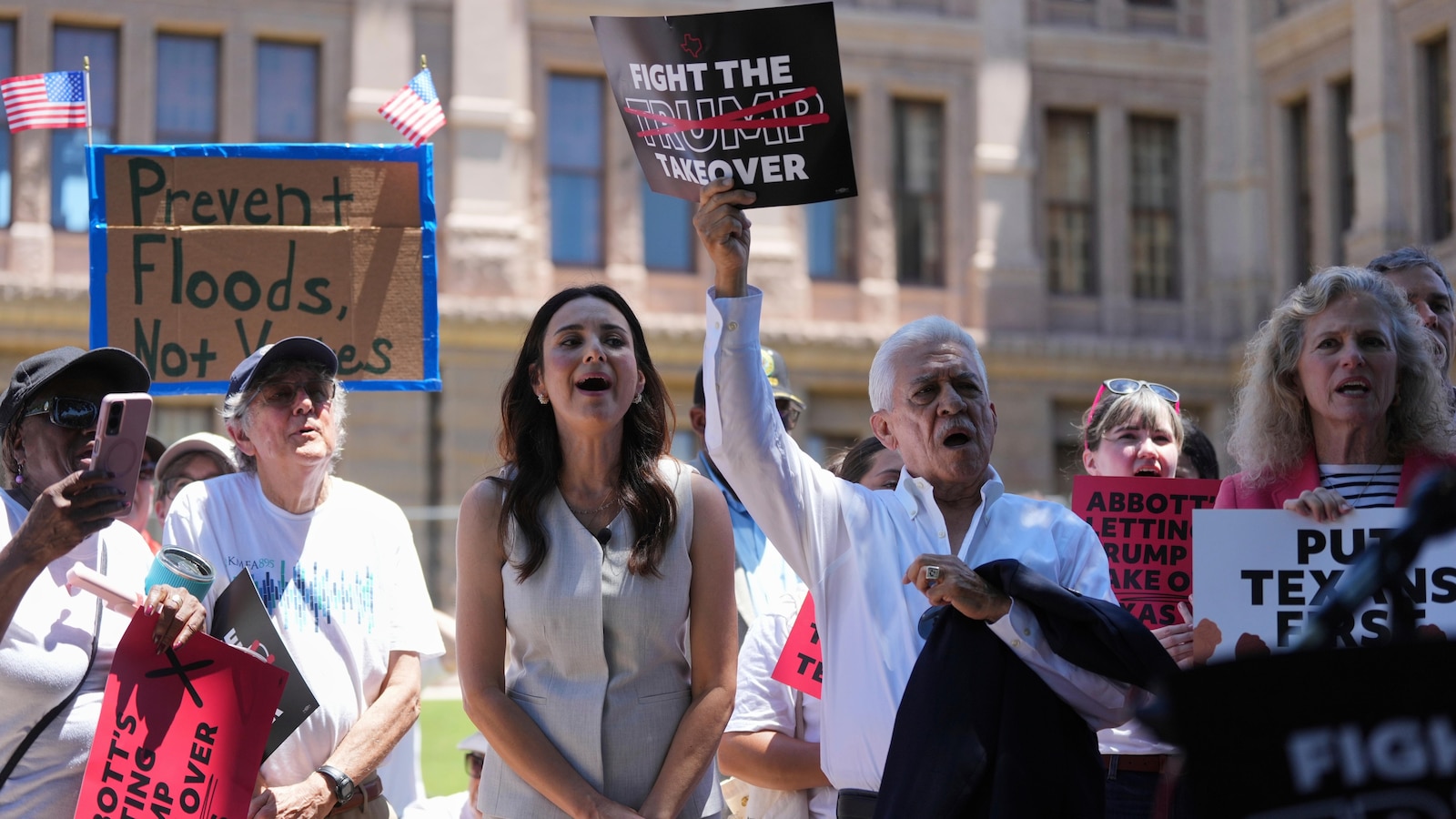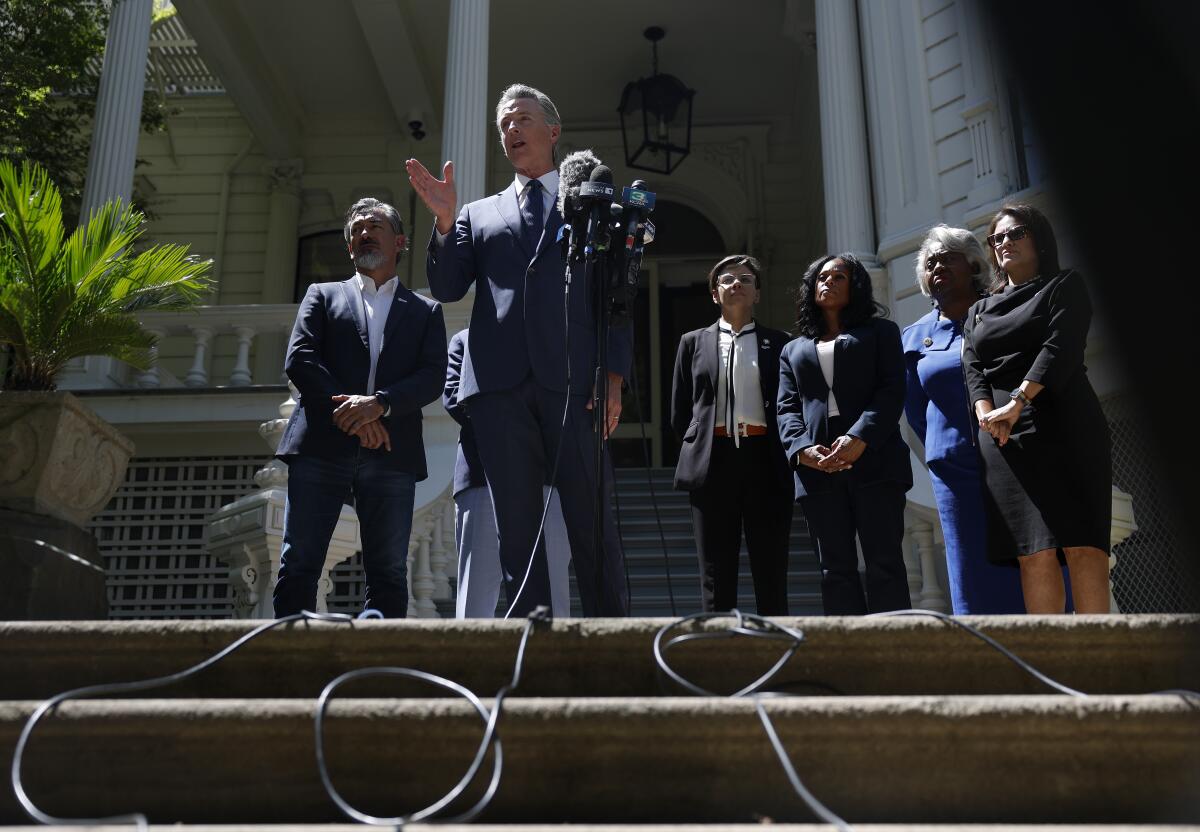Texas Redistricting Plan Sparks National Controversy

Texas Governor Greg Abbott convened a special legislative session this week, around July 21, 2025, to address the redrawing of congressional maps. Fueling the controversy is reported pressure from former President Donald Trump, who aims to secure up to five new GOP-leaning seats in Texas before the 2026 midterm elections. However, polling indicates that 63% of likely Texas voters consider this mid-cycle redistricting plan unnecessary.
Trump's Push and Texas Republicans' Goals

The redistricting effort is driven by Texas Republicans, who control the state legislature and are eager to strengthen their majority in the U.S. House. Donald Trump's active involvement highlights the national stakes of this redistricting battle. His influence is seen as a key factor in pushing for a redraw that would significantly benefit the Republican Party.
Texas Democrats Fight Back, Eye Legal Challenges

Texas Democrats are strongly opposing the redistricting plan. Some state legislators are considering a walkout to deny a quorum, while others have traveled to different states to meet with Democratic governors, seeking support. The Democratic Congressional Campaign Committee (DCCC) has pledged to use its resources to defend vulnerable Democrats targeted by the new maps. These efforts signal a multi-faceted resistance to the Republican-led redistricting.
DOJ Letter Adds Fuel to the Fire

Adding another layer of complexity, the U.S. Department of Justice (DOJ) sent a letter just two days before Abbott announced the special session. The letter cited "constitutional concerns" regarding four of Texas's current Democratic-controlled districts, suggesting they may be unconstitutional racial gerrymanders. Democrats view this as a politically motivated maneuver to provide cover for partisan redistricting.
California Governor Vows to "Fight Fire with Fire"

California Governor Gavin Newsom has repeatedly stated that California is prepared to "fight fire with fire" if Texas moves forward with mid-decade redistricting. He is exploring options, including a mid-decade redistricting by California's Democratic-controlled legislature. This is despite the state having an independent redistricting commission. Newsom has also mentioned the possibility of a special election to repeal the commission system, although this is considered a long shot. On July 25, 2025, Newsom hosted Texas state leaders in Sacramento to strategize against the Texas redistricting plan.
New York and New Jersey Governors Weigh Options

New York Governor Kathy Hochul has indicated that she will "look at it closely" with House Democratic leaders, stating that "all's fair in love and war" if other states manipulate rules for partisan advantage. Meanwhile, New Jersey Governor Phil Murphy has not ruled out a redraw, although mid-decade redistricting is not currently legal in the state and would require a change in state law.
Illinois and Maryland Join the Opposition

Illinois Governor JB Pritzker has stated that "we all ought to stand up against it," signaling his solidarity with the opposition to the Texas plan. In Maryland, the House Majority Leader is reportedly introducing legislation that would redraw Maryland congressional districts if any other state redraws maps outside of the census period.
Key Dates in the Redistricting Battle

The Texas special legislative session began the week of July 21, 2025, with redistricting as a key agenda item. On July 25, 2025, Governor Gavin Newsom hosted Texas state leaders in Sacramento to discuss strategies. Separately, Texas Democrats also met with Illinois Governor JB Pritzker on the same day. Prior to these events, a consolidated federal court case challenging Texas's 2021 congressional and state legislative maps went to trial from May 21 to June 11, 2025; a decision is pending.
Partisan Gerrymandering and a Potential Redistricting War

The Texas redistricting effort is widely perceived as a partisan maneuver by Republicans to increase their power before the 2026 midterms. The threats from Democratic governors to retaliate with their own mid-decade redistricting could escalate into a nationwide "redistricting arms war." This could lead to widespread political instability and increased litigation across the country.
Legality and Potential Legal Challenges

Mid-decade redistricting is rare without a court order, and any new maps would almost certainly face legal challenges. These challenges would focus on state constitutional restrictions and potential violations of the Voting Rights Act. While federal law doesn't prohibit partisan gerrymandering, state laws and courts can provide a significant legal barrier. The courts may decide on cases related to the 2021 maps as well, which could influence the decision.